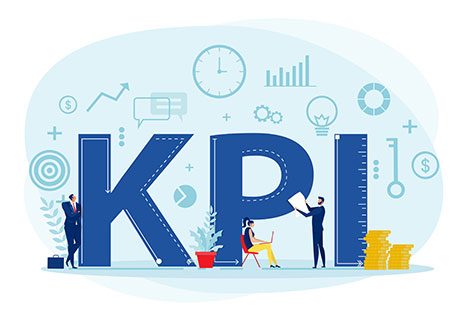As a training organization, one of the most important things you can do is to set up KPIs (Key Performance Indicators) to track your progress. Doing so will help you stay on track and ensure that you’re providing the best possible service to your clients.

What are KPIs?
Key performance indicators (KPIs) are a set of quantifiable measures that indicate how well your organisation is achieving its training goals. By tracking KPIs, you can identify areas of improvement and make necessary changes to improve your training programmes.
There are many different KPIs that you can track, but not all of them will be relevant to your organisation. It’s important to choose KPIs that align with your organisation’s goals and objectives.
Some examples of KPIs that you could track include:
- Number of training courses completed
- Number of students completing courses within the specified time period
- Number of students who are deemed competent in a training product
- Course completion rate
- Number of students who complete courses with a positive feedback rating
Why are KPIs important?
KPIs are important because they allow you to track progress and identify areas of improvement. By tracking KPIs, you can make changes to your training programmes to improve results.
How often should you review KPIs?
You should review your KPIs on a regular basis, such as monthly or quarterly. This will allow you to track progress and identify any trends.
If you’re not sure what KPIs to track, or how to set up a system for tracking them, consider hiring a consultant or using a software tool that can help you get started.
What is the best way to set KPIs?
When choosing KPIs, it’s important to consider what data you need to collect and how you will collect it. You also need to ensure that the KPIs you choose to align with your organisation’s goals and objectives.
There are a few different ways to go about setting up KPIs for your training organization. One way is to use a software program like Crystal Reports or Microsoft Excel. This method will allow you to input data into a spreadsheet and then create charts and graphs from that data.
Another way to set up KPIs for your training organization is to use a third-party service. There are many companies that offer this type of service, and they will often provide you with a web-based interface that you can use to input data and create reports.
Whichever method you choose, it’s important that you take the time to set up KPIs for your training organization so that you can track your progress and ensure that you’re providing the best possible service to your clients. Doing so will help you stay on track and ensure that you’re providing the best possible service to your clients.
When setting up KPIs for your training organization, there are a few things to keep in mind. First, you’ll need to decide what data you want to track. This may include things like customer satisfaction levels, employee retention rates, or sales numbers.
Next, you’ll need to decide how you want to track that data. You can do this manually, or you can use a software program to automate the process.
Finally, you’ll need to decide how often you want to update your KPIs. This will depend on how often you need to track your progress and make changes to your training program.
Once you’ve decided what data you want to track, how you want to track it, and how often you want to update it, you’ll be well on your way to setting up KPIs for your training organization. Doing so will help you stay on track and ensure that you’re providing the best possible service to your clients.
If you’re not sure where to start, consider hiring a consultant or using a software tool that can help you get started. There are many different options available, so be sure to do your research to find the best solution for your needs.
With the right KPIs in place, you can track progress and identify areas of improvement for your training organisation. This will help you to make necessary changes and improve results over time.




